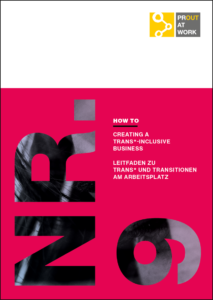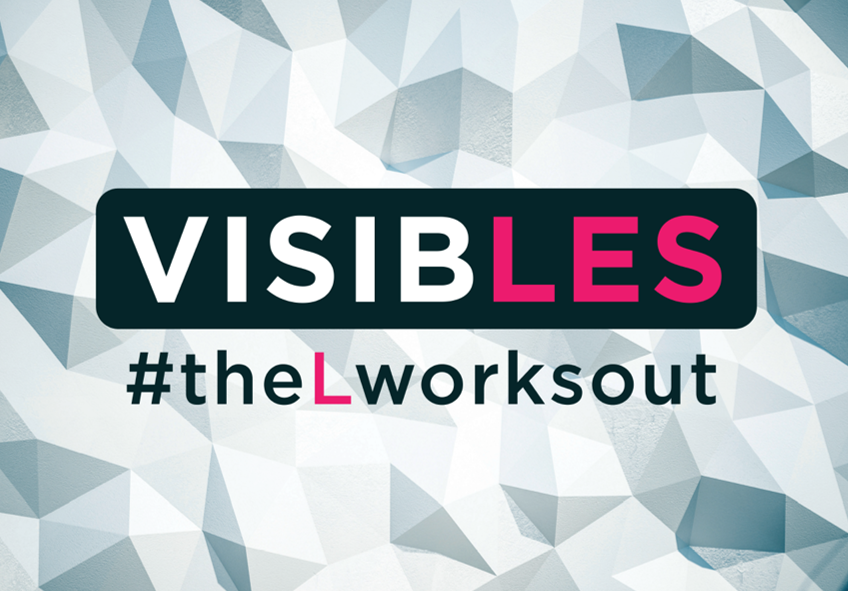
Campaign: #theLworksout for this years` Lesbian Visibility Day
Lesbian persons and Bi*sexual Women are often overlooked due to Lesbian Invisibility. To this day, there are very few visible lesbian role models-especially in a business related context. In many Networks, lesbian persons are a minority. Hence, important role models for younger colleagues aren´t guaranteed. With the Network- and Branch-encompassing campaign #theLworksout on the 26. of April, we can strenghten openly Lesbian Persons and, together with a wide spectrum of atendees, improve Visibility and point out the Diversity of Lesbian Persons.
How can i join the campaign?
- Inform yourself and speak to lesbian persons both inside your Network and outside, to raise awareness for the campaign.
- Take a portrait photo, orienting yourself on our examples, with your Tablet. It doesn´t matter if it is printed or digital. You´re welcome to use shades of grey instead of color for your portrait. (Make sure you´re allowed to use the logo of your company with your employer. If not, you may also use the company name, or hand your photo in without it.)
- Post your own campaign-photo on April 26 2023 at 10:00 AM, including the hashtags and taggings of your primary Social Media Channels.
Hashtags
#theLworksout
#LesbianVisibilityDay
#LesbianVisibility
#LesbischeSichtbarkeit
#LGBTIQBusinessLadies
#ProutAtWork
#LGBTIQRoleModels
#FlaggeFürVielfalt
Taggings
PROUT AT WORK
Facebook: @PrOut@Work
Instagram: @proutatwork
LinkedIn: @PROUT AT WORK-Foundation
Twitter: @proutatwork
If wanted, your own Company
Position your company as a supporter of the campaign and for Lesbian Visibility, and animate employees to take part.
This campaign was initiated by the PROUT AT WORK-Foundation and LGBT*IQ business-networks.
Tips for lesbian persons:
A Lesbian Coming out can still be tied to discrimination and hardships. If it helps you,
- look for Allies / Role Models in the company.
- network with the LGBT*IQ-network.
- look for support in dealing with discrimination and ill-fitting comments.
- always remember: You pick the time and place for your Coming Out.
Tips for companies:
- create sensibility for unconscious bias
- create clear expectation profiles
- anonymize applying for jobs
- Build/Strenghten internal LGBT*IQ-Networks
More information to the listed points can be found in the study “The L-Word in Business”, which deals with the situation of lesbian women in a work environment-with tips for employers.
TIps for Allies
- Inform yourself about lesbian topics.
- Use gender-inclusive language.
- Do not fetishize lesbian relationships.
- Stand up for the rights and against discrimination of Lesbian People. For example support the action nodoption, which works against the adoption of stepchildren and for the acception of Parentage in Rainbow Families.
Counseling:
Lesbenberatung Berlin
The “Lesbenberatung” is an open place for women, girls, Trans* and Inter* in different life situations.
LesMigras
LesMigraS is a branch of the “Lesbenberatung” Berlin e.V. that deals with discrimination and violence.
Letra
“LeTRa” stands for Lesben(T)Raum and is a place for meeting, counseling and event location for lesbian persons.
LIBS – Lesben Informations- und Beratungsstelle e.V.
LIBS e.V. is a psychosocial counseling office and with a goal of working against the reasons and follow up effects of discrimination against lesbian and bisexual women.
Regenbogenfamilien München
The Counseling Office in Munich works with rainbow Families to better the living conditions for them, and fight discrimination against them.
Rosa Strippe
The “Verein Rosa Strippe” is specialized on personal and individual problems of Lesbian, Gay, Bisexual, Trans* and Inter* persons, and offers help with their problems.
For a throwback and quotes to last years´ #theLworksout-campaign, take a look at our page on the Lesbian Visibility Day 2022.
Weitere hilfreiche Informationen und Interviews finden Sie auch in unserem Beitrag
zum Lesbian Visibility Day 2021.
We´re looking forward to your appliance!
More questions? Just contact us in our office!
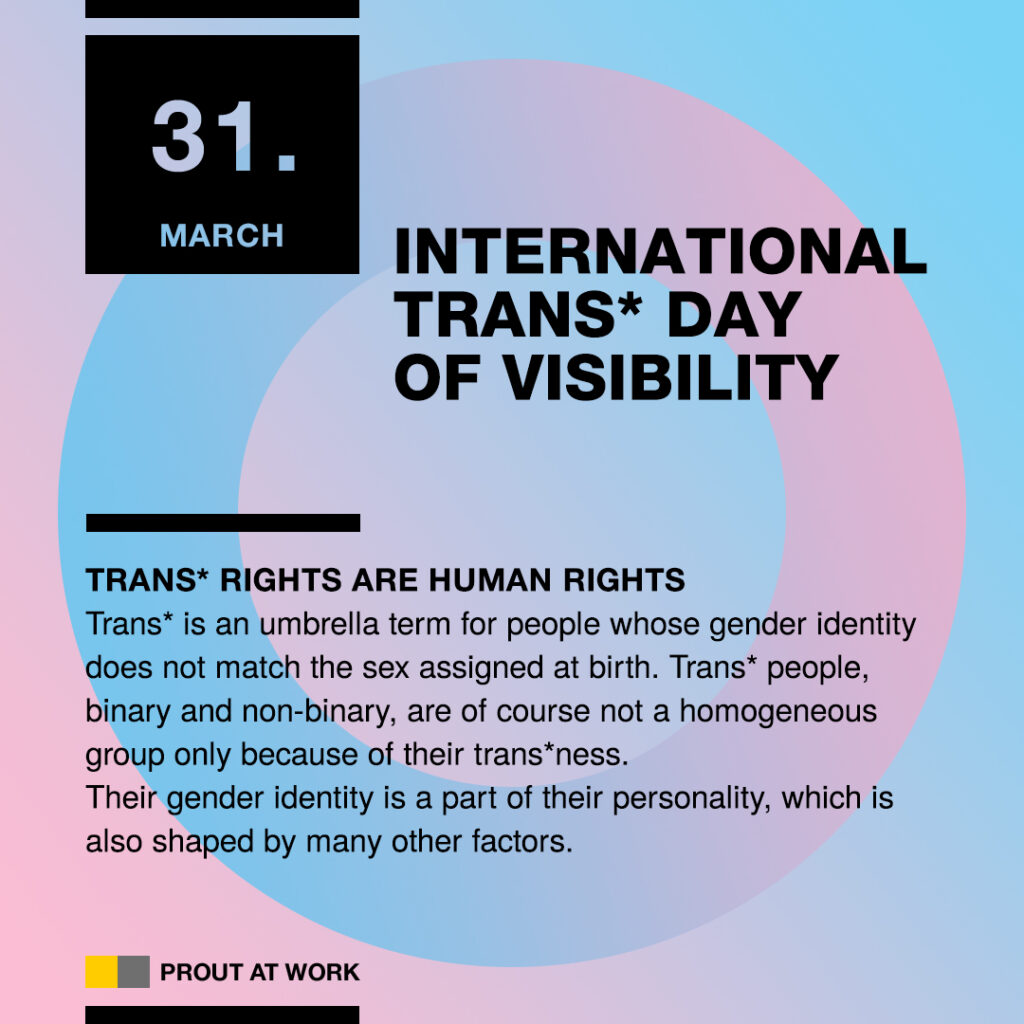
Trans* Day of Visibility (TDoV) has taken place each year on March 31 since 2009. The day is dedicated to raising awareness and visibility for trans* people and drawing attention to existing discrimination and transphobia. The day also provides a special opportunity for cis people to show solidarity with trans* people and stand up for equal rights. For us it is clear: #TransRightsAreHumanRights.
Trans* is used adjectivally and serves as an umbrella term for people whose gender assigned at birth does not match their gender identity. The asterisk (also asterisk) represents the multiplicity of possibilities of gender identities and gender expressions. Trans* thus refers to a diverse spectrum of identities, lifestyles and concepts that do not (want to) be located exclusively in a binary way.
All people should have the right to determine their own definition of their gender identity. The so-called “Transsexuellengesetz” (TSG) has prevented this for decades and is an example of the ongoing discrimination against trans* people. A new self-determination law must replace the TSG in order to protect trans* people from lengthy and humiliating procedures and make it easier to uphold their basic and human rights.
More information about trans* and trans* people can be found on Queerlexikon.
On the occasion of this year’s TDoV, we want to present you with the books “Being Human” by Alice Oehninger and “Ich bin Linus: Wie ich der Mann wurde, der ich schon immer war” by Linus Giese, the movie “Trans – I Got Life” and the MyStory’s by Hanna Brungs and Marit Wiechmann, personal stories of trans* people, but also tips and information about trans* at the workplace via our How To Guide No. 9 “Trans* and Transitions at the Workplace”.
ICH BIN LINUS: WIE ICH DER MANN WURDE, DER ICH SCHON IMMER WAR By LINUS GIESE

Linus has suspected that he is trans* since he was six years old. But out of shame and ignorance about terms such as queer, trans* and non-binary, he hid his true self for a long time. In 2017, he frees himself from his old life with the sentence “I am Linus”. In his book, Linus Giese also talks openly about the highs and lows of his journey, on which he repeatedly encounters hatred, especially on the internet. But that doesn’t stop him from standing up for the rights of trans* people.
Bein Human – An Autobiography by Alice Oehninger
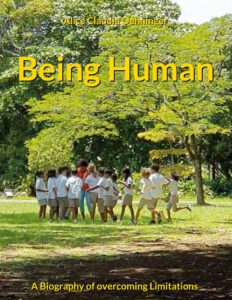
Alice is trans*. She looks like a white boy. In traditional Tanzania, she is expected to play this role. She goes through love and rejection and discovers a strong desire to be a parent. Playing the role of a man, she marries and finds happiness in Germany until a crisis destroys her fragile world.
Meetings and border crossings in cultures and gender. A very personal story that touches and invites reflection.
Trans – I Got Life
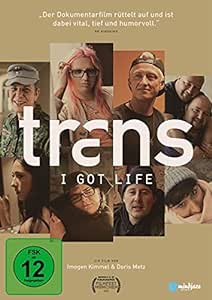
TRANS – I Got Life distils the broad spectrum of trans identity from the life stories of seven charismatic people. TRANS – I Got Life is a sensual journey into the in-between worlds beyond fixed gender norms, into intimate living spaces and into surgery, which becomes a delivery room for a second birth. In a subtle and multi-layered way, the trans experience is also transferred to the visual and audio level.
Creating a trans*-Inclusive Business – How To Guide Nr. 9
The guide covers the topic of trans* in the workplace and addresses employers, colleagues and trans* people themselves. It contains tips, information and experience reports to raise awareness and educate people on the topic. In addition, an exemplary process of a transition at the workplace is outlined and assistance for communication is offered.
Night of Realization – MyStory with Hanna
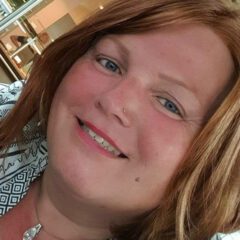
For a very long time I was searching for myself and at times I confused this with the search for other, material things – and I had to realize that these things did not really make me happy.
TRANS* IS SOMETHING WONDERFUL – MyStory with MArit Wiechmann
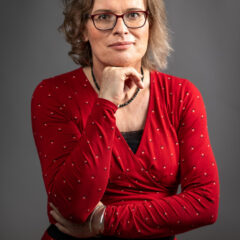
As a woman, I now have the courage to do things, make decisions and accept help. Why? What could happen if something goes wrong? After all, I am a human being with strengths and weaknesses and I am allowed to make mistakes, but also to be successful.

Campaign: #theLworksout for Lesbian Visibility Day
Lesbian persons and also bisexual women are often not perceived, one speaks of Lesbian Invisibility. To this day, there are few visible lesbian role models – especially in the business context. In many networks lesbian persons are in the minority. As a result, there is a lack of role models for new and younger colleagues. Through the cross-network and cross-sector campaign #theLworksout on April 26, we can empower openly lesbian people and together create visibility through a large number of participants, as well as highlight the diversity of lesbian people.
HOW CAN I PARTICIPATE IN THE campaign?
- Inform lesbian people from your own network and beyond to make them aware of the action.
- Create a portrait photo using the templates, whether printed or digitally with the tablet. You are also welcome to use the template in grayscale, for example. (Make sure to clarify in advance whether you are allowed to use the employer’s company logo together with the template. Instead, you can use the company name or use the template without the company name).
- Post your own campaign photo on 26.04. 2022 from 10:00 am with the respective hashtags and taggings on the social media channels you use
Hashtags
#theLworksout
#LesbianVisibilityDay
#LesbianVisibility
#LesbischeSichtbarkeit
#LGBTIQBusinessLadies
#ProutAtWork
#LGBTIQRoleModels
#FlaggeFürVielfalt
Taggings
PROUT AT WORK
Facebook: @PrOut@Work
Instagram: @proutatwork
LinkedIn: @PROUT AT WORK-Foundation
Twitter: @proutatwork
If applicable, own company
Position yourself and your company as a supporter of the campaign and for lesbian visibility and call on employees to participate.
The campaign was initiated jointly by the PROUT AT WORK-Foundation and LGBT*IQ business networks. The Lesbian and Gay Association (LSVD) and Wirtschaftsweiber e.V. support the campaign.
You can also find more helpful information and interviews in our article
on Lesbian Visibility Day 2021.
We´re looking forward to your appliance!
More questions? Just contact us in our office!
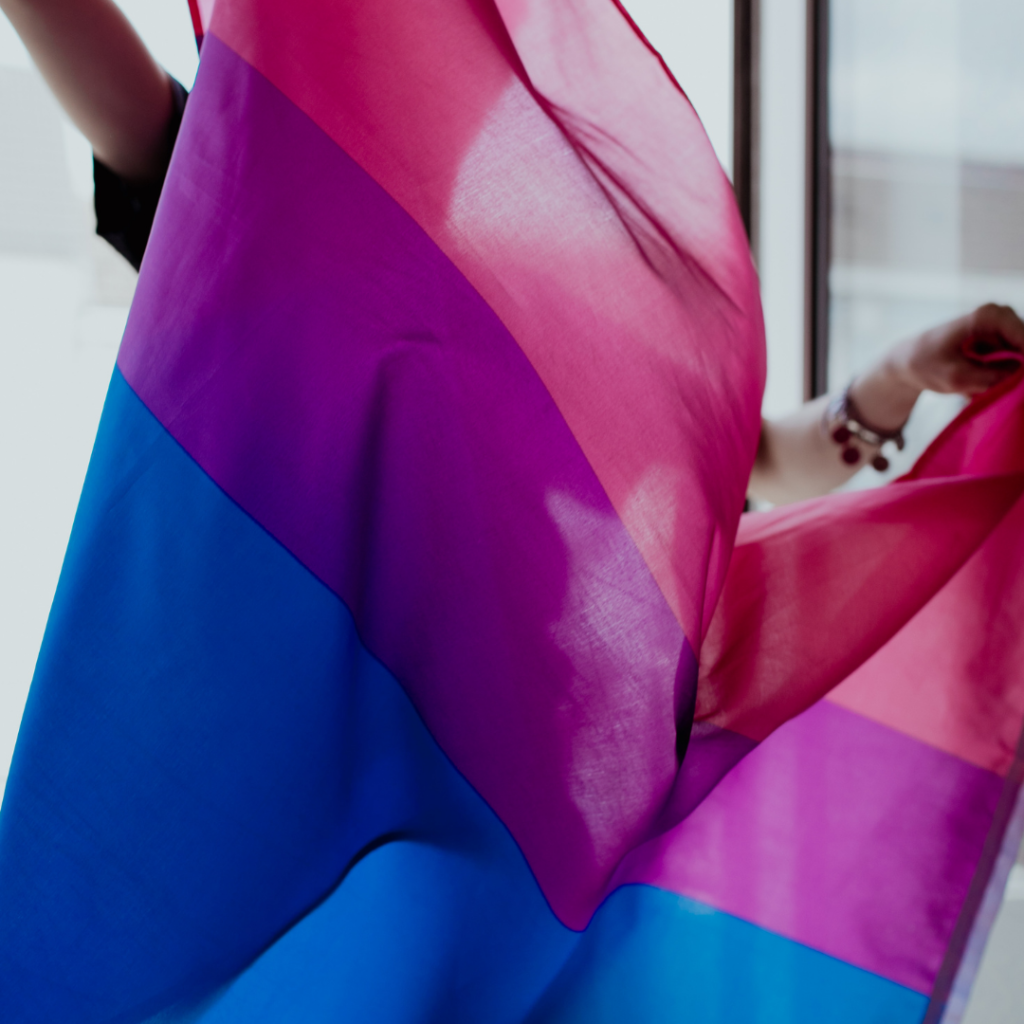
Bi-Visibility Day 2021 has been held annually since 1999. Today marks the end of Bisexual Awareness Week, which took place this year between September 16th-23rd 2021. It is intended to raise both awareness and create visibility for bisexual people, their concerns, and experiences of discrimination. Bisexuality is also often used as an umbrella term for various bi-identities. These include, for example, bisexuals, bicurious persons, pansexuals, polysexuals, multisexuals, and omnisexuals.
The term bisexuality is formed from the Latin word “bi” (meaning “two”) and stands (literally and in binary terms) for interest in one’s own gender as well as the opposite gender. Nowadays, with the progressive dissolution of the binary norm through non-binary gender identity and other expressions of gender, there have long been discourses about how binary this sexual orientation should really be seen. It is important that each bisexual defines bisexuality for themselves, including, for example, non-binary or trans* people. As an overall definition it can be stated that bisexuality describes the attraction to two or more genders.
The symbolism behind the colors of the bisexuality flag:
- Pink represents both emotional and sexual attraction to the same gender.
- Purple stands for the “overlap,” the symbolism for interest in two or more genders.
- Blue represents the emotional as well as sexual attraction towards the opposite gender.
INTERVIEW WITH PROUT EXECUTIVE DR. FOLMA KISER, DIRECTOR AT BAYER AG
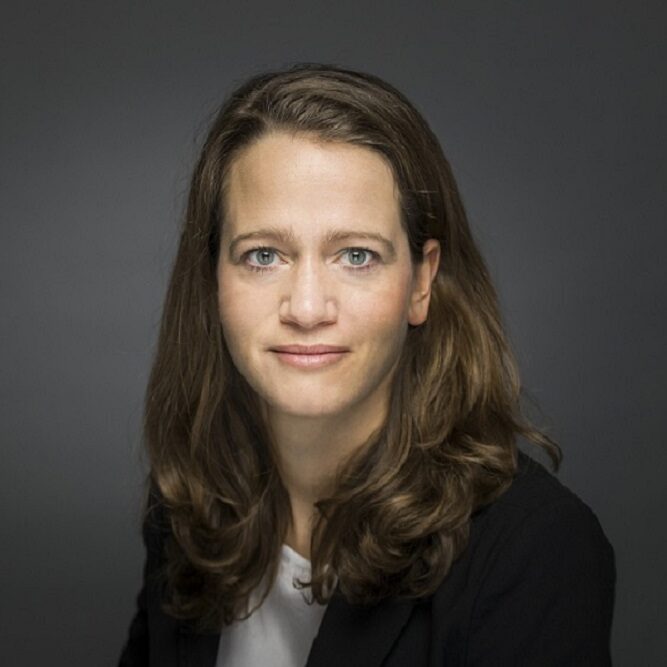
What formative experiences related to your bisexuality have you had (in the workplace)?
To be honest, few. Surprised faces is perhaps one thing and complete silence another. But a really great experience was when a colleague told me that he now dares to be open about his sexuality. He saw me on the PROUTExecutives list and is convinced that you can live your identity openly at Bayer and still have a career. That has encouraged him a lot.
How is the topic of bisexuality addressed in your workplace?
Sexuality is generally not addressed, except in the internal LGBT*IQ network BLEND and marginally in the topic of D&I.
What challenges do you face as a bisexual person or what stereotypes do you face?
I see myself less confronted with challenges as a bisexual person but more as a rainbow family in general. You can see that, for example, the terms “gay”, “lesbian” and “bi” are still used as swear words in schoolyards (and not only there) and also educators and teachers avoid the topic of LGBT*IQ and inclusion in general. Social acceptance is still difficult when the major democratic parties react here only half-heartedly. The pressure on other countries like the G7 is also not there, so same-sex marriages are not recognized in all G7 states. My wife did not even get a “residence status” in Japan, whereas our children and I got it during our stay.
What else would you have wished for your coming out?
For me, that was still at the beginning of the Internet era, more networked groups would have been great here. I think that the information available and networks in general are much better today. And also if the topic LGBT+ had been on the curriculum at school – then everyone who is not hetero-cis would have had an easier time understanding their identity.
STATEMENTS BY ACCENTURE EMPLOYEES ON THEIR EXPERIENCES WITH BISEXUALITY
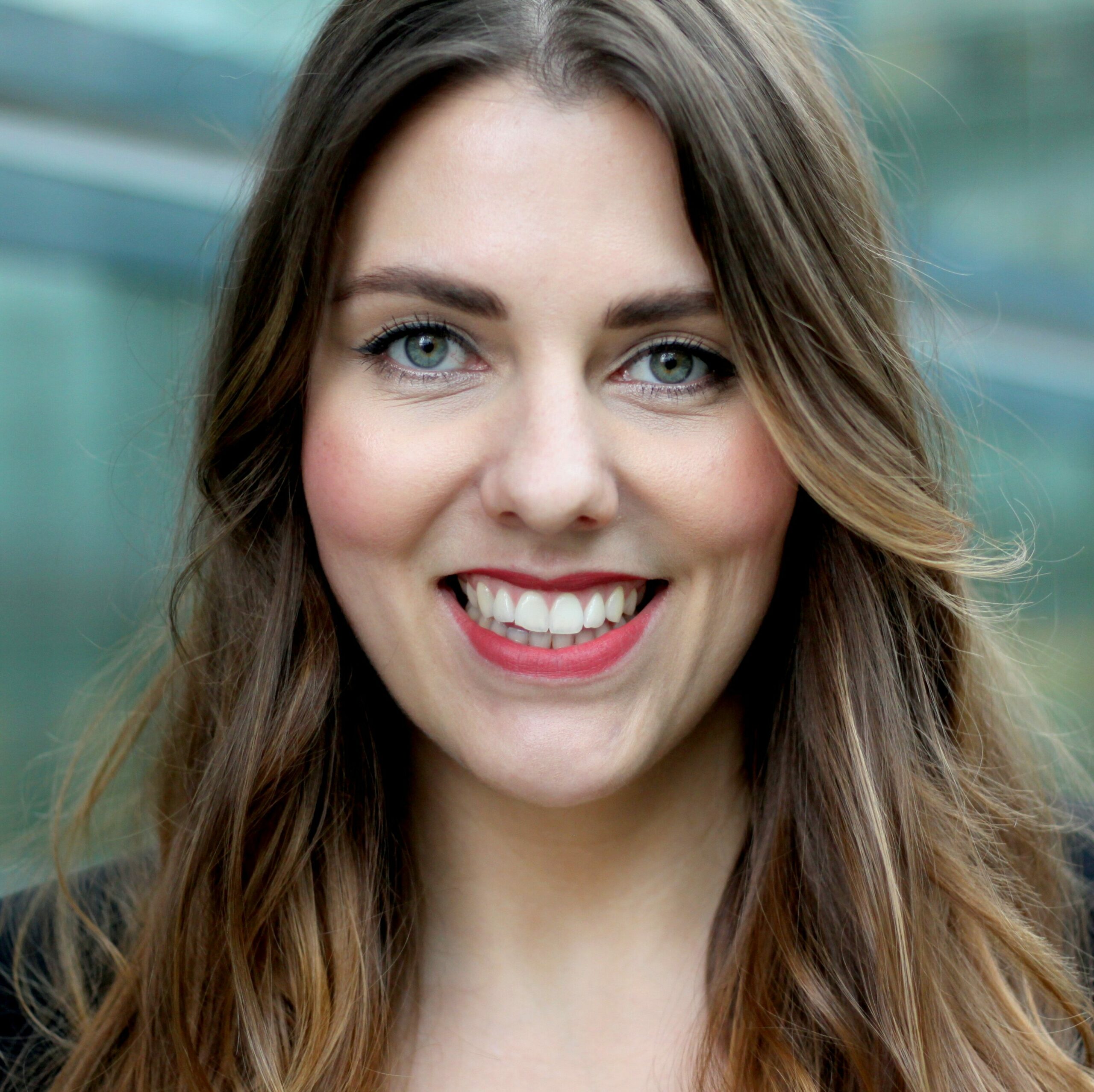
Teresa Pieper – Management Consultant
Hello, my name is Teresa (she/her) and I work as a business consultant in financial services. I was 30 years old when I realized that I was attracted to people regardless of their gender.
I’ve never been uncomfortable with men, and that’s the reason I didn’t realize I was also attracted to women and other genders.
With greater visibility of people identifying as bisexual, I would have been able to recognize it much sooner and thus feel like it was a serious sexual orientation and not just “a phase” or “being confused.” Role models and a general acceptance of bi-sexuality are so important for us to show that sexuality is not just either straight or gay.
An inclusive and informative work environment helps me be myself, continue to learn, educate colleagues and friends, and feel safe when facing clients. I know my employer always has my back.
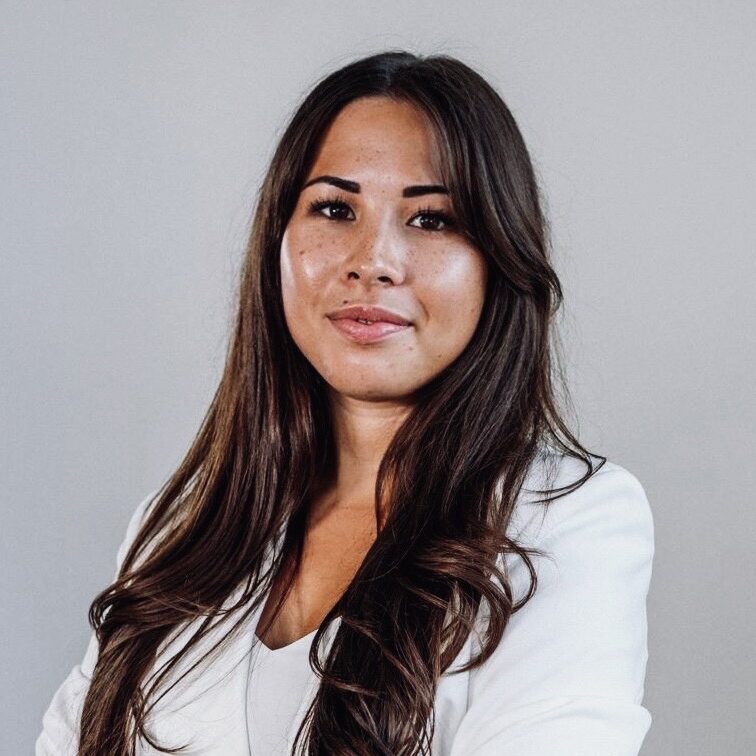
Vanessa Zimmermann – Executive Support Analyst
I wish those around me had taken it seriously and not just declared it as a “phase”. Most people were surprised and the instant reaction was usually, “You don’t look like that” – which can be frustrating.
Bisexuality is not the most present topic in the LGBT+ community, most people are open to it, but I often get negative comments like, “You need to make up your mind” or “It’s just not the real thing” – people just don’t take it seriously. For the same reasons, I was pleasantly surprised to hear about our local celebration of Bisexual Visibility Day. Some people don’t know any better, and these venues can help us raise awareness to keep moving forward toward a more inclusive work environment.
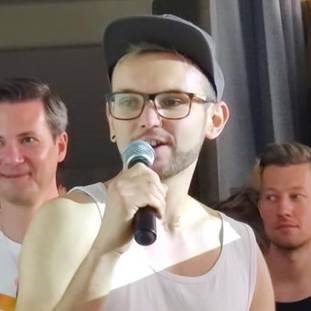
Felix Steinhardt – Digital Business Consultant
As PRIDE Lead Germany, one of my tasks is to support all members of our community as much as possible. For me, the importance of visibility is fundamental to creating a closer connection to our members and their stories. As a bisexual person, I know that sometimes it can be hard to resist the labels that others want to put on us, but hey…. there’s nothing like being proud of who you are!
Our commitment to diversity is felt everywhere and helps our teams create innovative solutions. No one has to pretend – mutual respect and empathy make us one big family.
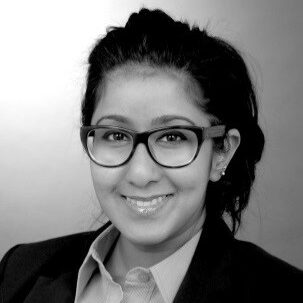
Timona Borhanuddin – Technology Strategy & Advisory
I was born in Hamburg. However, when I was six years old, I moved back to Bangladesh with my family. Due to the cultural and traditional norms in Bangladesh, I was confronted with many stereotypes as a child and teenager. I was taught how to be the perfect housewife for a man, and that you have to get married to make your parents proud. It was not easy to break all these stereotypes.
Today, I am OUT, LOUD, and PROUD of the fact that I am successful professionally, that I stand by my bisexuality, and that I have accomplished everything on my own terms. Stereotypes are set by society, and we can overcome them if we believe in ourselves and are open about it.
Before coming to Accenture, I worked at a smaller consulting firm where I didn’t feel like I could be myself. I didn’t dare talk openly about my sexual orientation or LGBT+ issues at my previous employer. That’s all the more reason why, when I changed employers, I made sure I was seen as a person. I firmly believe that we all work better and are more successful as a team when we create an open and tolerant environment where we can respect each other and all be ourselves.
At Accenture, you are motivated and supported to bring your authentic self to the workplace.If that means talking about your sexual orientation, you should be able to do so easily.
Accenture promotes an inclusive workplace and creates an environment where everyone can develop and flourish and be themselves to the best of their ability with special LGBT+ training, mentoring programs and a modern understanding of leadership and open exchange.
The statements are based on the personal experiences and opinions of employees and therefore do not reflect the opinions of Accenture or Bayer.

